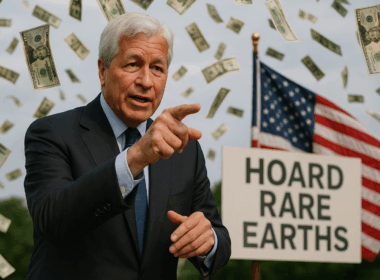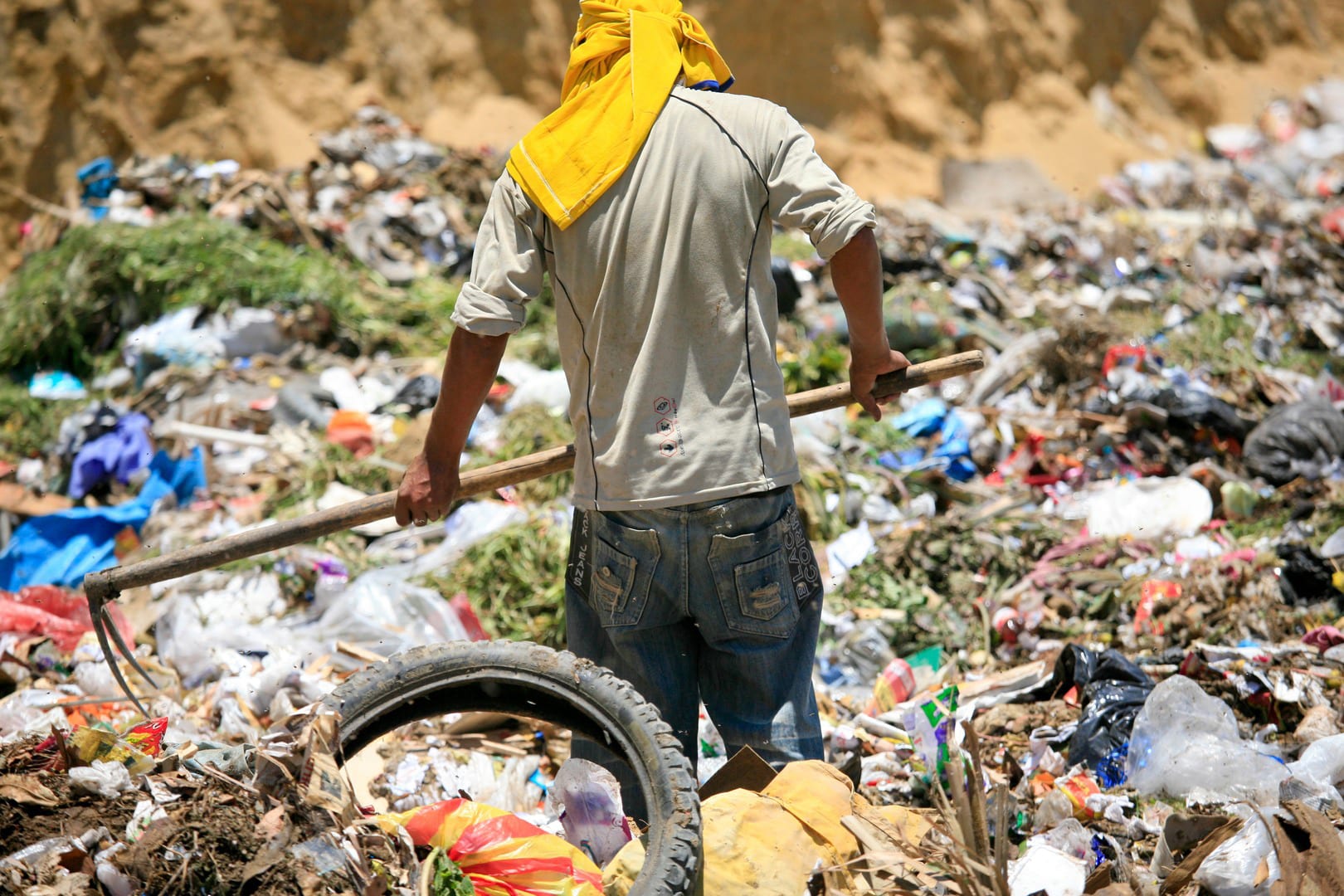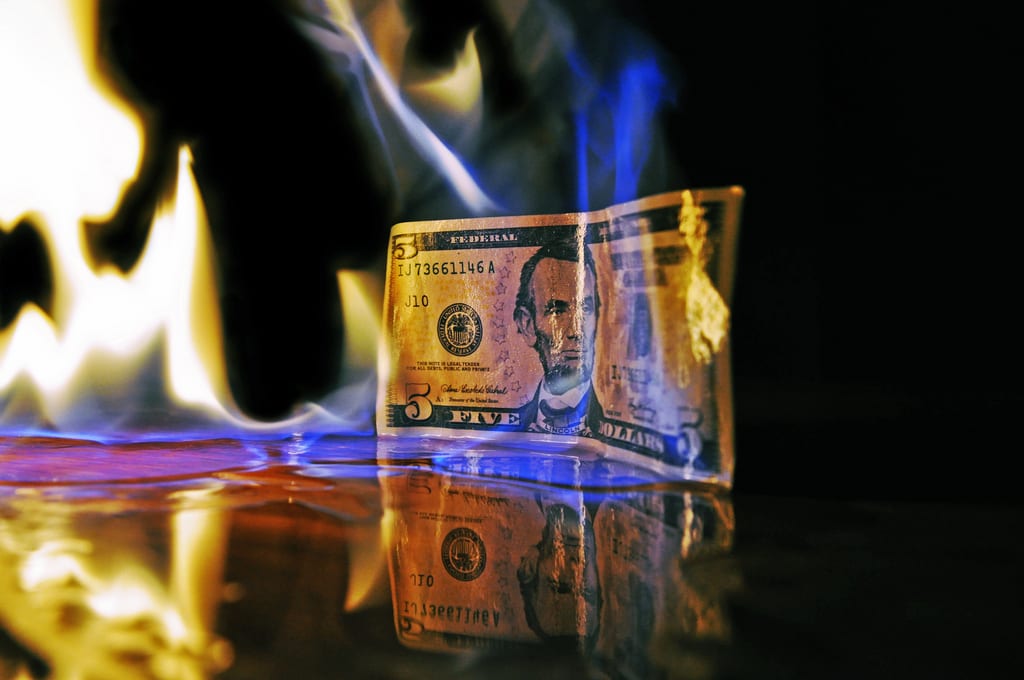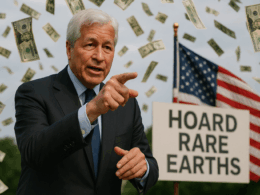Markets rallied worldwide last week. Germany finally approved the eurozone’s permanent bailout scheme and new budget rules on Friday.
Oil rose the most in more than three years with futures gaining 9.4 percent, trimming the biggest quarterly decline since the final three months of 2008.
Mike Wittner, head of oil market research at Societe Generale SA in New York, said that, “We’re seeing a massive return of risk appetite…The market was impressed by what the Europeans accomplished and there’s a feeling that the worst may be over.”
Hold it right there.
The “feeling that the worst may be over” is just that – a feeling.
While it was the first major step in dealing with the eurozone crisis, there are still major hurdles and roadblocks ahead. Lawsuits are piling up citing this new deal is unconstitutionial, with thousands of Germans joining forces to take legal action. There are a lot of angry citizens. For now the deal is a go.
So what does that mean?
First, it means Italy and Spain should now have an easier time qualifying for aid from the bailout fund (European Stability Mechanism or ESM) that goes into operation today. Countries that follow the existing economic-policy recommendations can tap into the fund without having to fulfill any extra conditions. But the ESM is still limited to a maximum of €500 billion ($633 billion) in bailout funds. That’s practically nothing considering Spain and Italy together owe about €2.4 trillion on bonds, bills, and loans.
Second, money from the ESM can now go directly into Spanish banks without having it go through the Spanish government. However, this will only happen after the creation of a European-wide banking supervisor – a step toward the ultimate goal of a full-scale european banking union; in other words, a Euro Fed.
Third, governments will no longer receive preferred creditor status on emergency loans to Spanish banks. By claiming preferred status, official lenders have effectively subordinated the banks’ private bondholders; telling them they don’t have first claim on the banks’ assets in the case of a default. As a result, the private bondholders have demanded even higher interest rates for their risk. The higher interest rates have made it almost impossible for Spanish banks to raise money except through official channels.
So while the recent Euro deal sounds good at first, there’s still a big mess on the table. Official lenders will still have preferred creditor status on loans to countries other than Spain. Debtor nations, outside of Greece, still haven’t reduced any debt. Debt is the problem.
Ultimately, the bankers are winning and everyone suffers. Soon there will be one European-wide banking supervisor that can directly give banks cash as it pleases. He/she will force the issue of euro bonds – debt that would be jointly guaranteed by all European Union nations; Germans will have to suffer. He will also engage in another large round of long-term lending to banks. He will force the issue of more printed money.
What the Fed Doesn’t Want You to Know
We’re in a state of deflation. While commodity prices remain high and oil and gas are rising back up, they have all fallen from their peaks in 2008.
If you look at history, great times of inflation have always occurred when both money and debt levels rose during the natural deflation that occurred after inflationary peaks had been reached. We’re there right now.
Leading up to 2008 prices were skyrocketing (inflationary peak). Prices are now trending back down; real estate, oil, wages, are all heading on a downtrend. That means we’re in a state of natural deflation after an inflationary peak. When we finally move away from deflation, a time of great inflation will come as a result of massive debt and a dramatic increase in the money supply.
I mentioned last year in “The New Breed of Destruction” that the only natural outcome for the EU crisis is federalization. Europe is now on the way to the federalization of its banks. This will undoubtedly make it easier to print more money to fuel the bailouts of the debt-ridden countries.
In my last Weekly Letter, I talked about the ultimate failures of currencies. Given the continued progress of the world’s two most powerful currencies, Europe and the US, what do you think will happen?
Gold Will Remain King
Gold has done some amazing things in the last decade and central banks are purchasing gold at record pace. Yet people remain skeptical and talk about the big drop from $1900 to $1500. Investments rarely move in a straight line and that includes gold.
Gold and silver are still very undervalued given the world’s current economic state. While the spike from last week was strong, its still on hold because politics and bankers are controlling its price action. The Fed continues to hold interest rates down and will continue to print more money. The ECB will most likely drop interest rates July 5 leading to lower borrowing costs; or as any sane man would call it, more debt.
No matter what has happened to gold, its always managed to climb back with strong support. According to Bloomberg, investors added almost $2 billion to holdings in gold-backed exchange-traded products in June, the most since November. While gold came close to a bear market in May as investors sold bullion to cover the $7 trillion erased from global equities in two months, its once again proving its worth.
We’re progressing in a natural deflationary state after the peak inflation of 2008. That means the big wave of gold’s uptrend has yet to really hit. The “gold to fight inflation” ideology hasn’t even come close to hitting us. But it will. Gold will hit $2000 and soar pass $2500 – when it does, the mining shares will finally follow sharply.
Until we see gold climb back higher, mining shares will remain volatile. But this is also the best time to buy them…when nobody else wants them.
It’s Time to Get Stinky
Now is the best time to put in those stink bids – a bid that is far below the current market price of a stock.
Many funds are still being hit by redemptions and have no loyalty to the share price of any stock they own; meaning they’ll sell regardless of price. The juniors have lost so much support that any large sell order could significantly lower their share price. That means you can get some serious bargains over the summer – especially as institutional players leave the market to go suntan with their margaritas.
I am putting in stink bids everywhere. Remember, the goal is to buy low and sell high – not buy high and sell high. As the juniors trend lower, your stink bids could get filled and potentially turn into life changing investments when the market turns.
The underlying fundamentals are there and the market is always late to catch up. It won’t take a lot of buying for some of these companies to climb 100% or more.
One company I am putting in bids for is Balmoral Resources (TSX-V: BAR). You can read my initial report, “A Recipe for Success” to catch up.
Not only does Balmoral own one of the largest land packages in the Abitibi, it owns almost all of it right beside what will become Canada’s largest gold mine next year: Detour Gold’s 15.6 million ounce Detour Lake Mine.
Balmoral is led by a proven management that advanced the exploration at West Timmins Mining, which was sold to Lake Shore in 2009 for $424 million. West Timmins went from $0.13 in 2008 to a $3 buyout in less than a year. That means management knows how to make shareholders money, regardless of market conditions.
They’ve got a strong treasury and I expect them to continue their drilling success right beside Detour Lake.
The analysts are starting to catch on.
In Cormark Securities’ recent mining and exploration report, “Junior Golds: Poised For The Rebound,” Balmoral was one of four companies recognized as an earlier stage company believed to be better poised relative to their peers to benefit from any investor return to microcap gold equities.
Balmoral currently trades at C$0.55.
My bids are going in. I already own shares but I want more if sellers are going to give it to me cheap.
Critical Condition
The European Monetary Union is in a critical condition. The idea of a full-on EU banking union as a quick fix for the region’s fiscal and financial problems will have far-reaching consequences.
Protect yourself.
Spain just beat Italy to take the Euro 2012 championship – as I expected they would from the beginning of the tournament. Now if only these two countries can control their debt as well as they play soccer…
Until next week,
Ivan Lo
Equedia Weekly

Disclosure: I am long gold and silver through ETF’s and bullion, as well as long both major and junior gold and silver companies – which means I am biased towards the sector. We’re also biased towards Balmoral Resources Ltd. because they were an advertiser and we own shares. You can do the math. Our reputation is built upon the companies we feature. That is why we invest in every company we feature in our Equedia Reports, including Balmoral Resources Ltd. It’s your money to invest and we don’t share in your profits or your losses, so please take responsibility for doing your own due diligence. Remember, past performance is not indicative of future performance. Just because many of the companies in our previous Equedia Reports have done well, doesn’t mean they all will. Furthermore, Balmoral and its management have no control over our editorial content and any opinions expressed are those of our own. Equedia.com & Equedia Network Corporation bears no liability for losses and/or damages arising from the use of this newsletter or any third party content provided herein. Equedia.com is an online financial newsletter owned by Equedia Network Corporation. We are focused on researching small-cap and large-cap public companies. Our past performance does not guarantee future results. Information in this report has been obtained from sources considered to be reliable, but we do not guarantee that it is accurate or complete. This material is not an offer to sell or a solicitation of an offer to buy any securities or commodities.
Furthermore, to keep our reports and newsletters FREE, from time to time we may publish paid advertisements from third parties and sponsored companies. We are also compensated to perform research on specific companies and often act as consultants to many of the companies mentioned in this letter and on our website at equedia.com. We also make direct investments into many of these companies and own shares and/or options in them. Companies do pay us to advertise on our website and we often distribute our reports on featured companies. While we are never paid to write a rosy and positive report on any company, we do market our reports using the advertising fees paid for by our featured companies.
This process allows us to continue publishing high-quality investment ideas at no cost to you whatsoever. Our revenue is generated by sponsor companies and we grow our readership by using the advertising fees we charge to distribute our reports. This helps both Equedia and our client companies gain exposure and allows us to provide you with our research at no cost.
Therefore, information should not be construed as unbiased. Each contract varies in duration, services performed and compensation received.
If you ever have any questions or concerns about our business or publications, we encourage you to contact us at the email or phone number below. Equedia.com is not responsible for any claims made by any of the mentioned companies or third party content providers. You should independently investigate and fully understand all risks before investing. We are not a registered broker-dealer or financial advisor. Before investing in any securities, you should consult with your financial advisor and a registered broker-dealer. The information and data in this report were obtained from sources considered reliable. Their accuracy or completeness is not guaranteed and the giving of the same is not to be deemed as an offer or solicitation on our part with respect to the sale or purchase of any securities or commodities. Any decision to purchase or sell as a result of the opinions expressed in this report OR ON Equedia.com will be the full responsibility of the person authorizing such transaction.
Please view our privacy policy and disclaimer to view our full disclosure at http://equedia.com/cms.php/terms. Our views and opinions regarding the companies within Equedia.com are our own views and are based on information that we have received, which we assumed to be reliable. We do not guarantee that any of the companies will perform as we expect, and any comparisons we have made to other companies may not be valid or come into effect. Equedia.com is paid editorial fees for its writing and the dissemination of material and the companies featured do not have to meet any specific financial criteria. The companies represented by Equedia.com are typically development-stage companies that pose a much higher risk to investors. When investing in speculative stocks of this nature, it is possible to lose your entire investment over time. Statements included in this newsletter may contain forward looking statements, including the Company’s intentions, forecasts, plans or other matters that haven’t yet occurred. Such statements involve a number of risks and uncertainties. Further information on potential factors that may affect, delay or prevent such forward looking statements from coming to fruition can be found in their specific Financial reports. Equedia Network Corporation was paid $7143 plus HST per month for 7 months which totals $50,000 plus hst of media coverage on Balmoral Resources Ltd. plus any additional expenses we may incur as a result of additional distribution. We are no longer under contract. Balmoral Resources Ltd. has paid for this service in one lump sum. Equedia.com may purchase shares of Balmoral Resources Ltd. without notice and intend to sell every share we purchase for our own profit. We may sell shares in Balmoral Resources Ltd. without notice to our subscribers. We currently own shares of Balmoral Resources Ltd. Balmoral is no longer a client.
Equedia Network Corporation is also a distributor (and not a publisher) of content supplied by third parties and Subscribers. Accordingly, Equedia Network Corporation has no more editorial control over such content than does a public library, bookstore, or newsstand. Any opinions, advice, statements, services, offers, or other information or content expressed or made available by third parties, including information providers, Subscribers or any other user of the Equedia Network Corporation Network of Sites, are those of the respective author(s) or distributor(s) and not of Equedia Network Corporation. Neither Equedia Network Corporation nor any third-party provider of information guarantees the accuracy, completeness, or usefulness of any content, nor its merchantability or fitness for any particular purpose.












